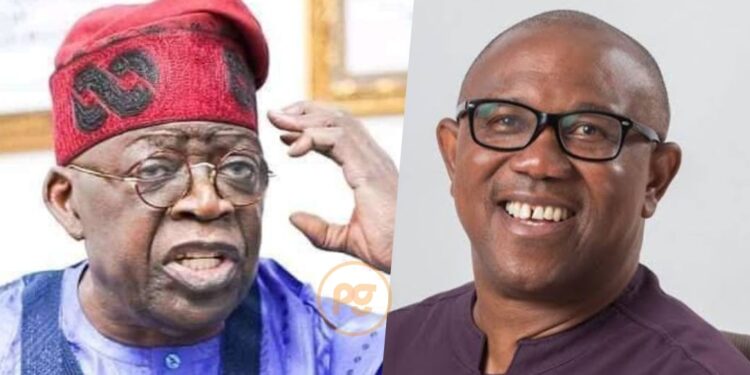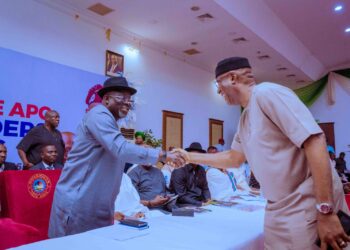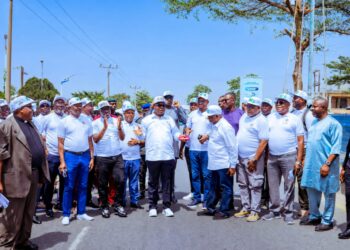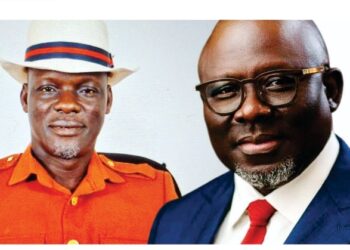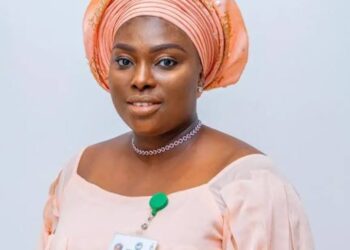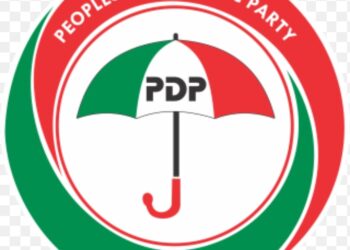7 February 2023

Stears, a pan-African data company, has released the results of a new, predictive electoral poll suggesting a Peter Obi of the Labour Party (LP) victory by nine percentage points in a high-turnout scenario and a tighter Asiwaju Bola Tinubu of the ruling All Progressives Congress (APC) victory in a low-turnout election.
This was contained in a statement released by Stears after conducting a statistically significant, nationally representative poll to survey voter preferences and intentions ahead of the 2023 general elections.
Currently, the Stears poll is the largest public opinion electoral poll on the 2023 Elections with 6,220 Nigerians polled. The sample was randomly stratified by state and gender to mirror the distribution of registered voters in Nigeria.
Some highlights of the poll showed that Obi is the most universally accepted candidate and that Nigerians vote along religious lines.
One condition to win the Nigerian presidential elections is that the candidate must secure at least 25 per cent of the vote in at least two-thirds of the states. This condition is to ensure some level of universal popularity.
From the poll’s data set, Obi is the candidate that achieves at least 25 per cent of the vote in the most geopolitical zones (five out of six) among voters that declared their candidate preference. He leads Tinubu (four out of five), while Atiku Abubakar of the Peoples Democratic Party (PDP) only secures 25 per cent of the vote in two geopolitical zones.
The only region where Obi fails to secure 25 per cent of the vote is the North-West, where the presence of Rabiu Kwankwaso of New Nigeria Peoples Party (NNPP) means that votes are most evenly split in the region.
When asked “What are the most important factors that will mostly influence your decision to vote for a presidential candidate?” only four per cent of Nigerians admit that religion influences their decision to vote for a presidential candidate.
Religion is ranked the lowest among eight factors, lower than the choice of running mate. There is no difference between the proportion of Christians (three per cent) and Muslims (five per cent) that consider religion a factor. But the poll strongly suggests that Nigerians vote along religious lines.
All 36 states and the FCT were polled. The sample size and breakdown also enables Stears to provide statistically valid predictions at state-level, a unique feature of the 2023 electoral polls made available to the public
After conducting Nigeria’s most robust public opinion polls for the 2023 cycle, Stears developed a proprietary estimation model that predicts likely voting patterns for silent voters within the data set, enabling comprehensive forecasts of the 2023 presidential elections.

Michael Famoroti, Head of Intelligence & Co-Founder at Stears, said: “Simple analysis of the poll results puts Obi in the lead with 27 per cent of all votes, ahead of Tinubu (15 per cent) and Atiku Abubakar of the Peoples Democratic Party (12 per cent).
“This is aligned with the results of other polls; however, it is hard to draw definite conclusions without examining the large portion of respondents who do not provide a candidate preference—a proportion as high as 50 per cent in previously released polls.
“Where other polls have been inconclusive due to the large share of silent voters, Stears’ proprietary model is able to provide answers by predicting the most likely candidate for silent voters,” he explained.
CEO, Stears, Preston Ideh, in his comments, said: “We can analyse data sets from various sectors, but election data is particularly interesting because it is freely available. We started with Stears Elections, an open data project designed to organise all of Nigeria’s election data. In 2019, we built Nigeria’s first real-time election database, and now in 2023, Stears Elections is the most granular way to track all live election results for the Presidential, Gubernatorial, National Assembly, and State Houses of Assembly elections. Ahead of a pivotal moment for the country, there is no better time to apply our analytics expertise to our proprietary election polling data.”
A predictive model is necessary to make sense of electoral polling data because a substantial portion of voters surveyed in 2023 electoral polls declined to reveal their preferred presidential candidate. A December 2022 ANAP poll showed that 52 per cent of voters were undecided or chose not to reveal (Figure 1.2). In the Stears’ poll, 37 per cent of voters did not reveal their preferred candidate. There are many plausible reasons why certain Nigerian voters would be unwilling to reveal their candidates. Data from Stears’ polls showed that silent voters are unevenly spread across demographics, pointing to the need for more nuanced analysis. For example, voters in the South East are most willing to reveal their preferred candidate, while women, in general, are more reticent to declare their preference.
Stears’ predictive model analyses the stated preferences of the transparent voters and the revealed preferences of silent voters to estimate the most likely preferred candidate for each silent voter. Even though the model assigns 43 per cent of undeclared votes to Tinubu, suggesting most silent voters are Tinubu supporters, Obi is still the predicted winner when the reassigned silent voters are added to the declared voter count.
High voter Turnout
To take the analysis further, Stears defined a high-turnout scenario and applied it to the prediction model. The high-turnout scenario includes all respondents that declared an intention to vote, except those that had not yet collected their PVC or did not say they were certain to vote. In this case, Obi gets 41 per cent of the vote, holding a comfortable lead over Tinubu, based on the model’s predictions. The high-turnout scenario corresponds to a turnout of roughly 80 per cent on the day.
Low voter turnout
The low voter turnout scenario must also be reckoned with, particularly because the path to casting a vote that is eventually counted by INEC is fraught with risk. The low-case scenario only includes respondents that meet the following criteria: They have their PVC, they state they are certain about their chosen candidate, they feel very confident in the electoral process, they are sure they will vote, and they feel safe or very safe going out to vote. In a low voter turnout scenario, Tinubu edges the vote. The low-turnout scenario corresponds to a turnout of roughly 28 per cent on the day.
“Producing Nigeria’s first predictive poll cements us at the frontier of election predictive analytics in Africa. We recognise the gaps in Africa when it comes to data collection and analytics. Stears exist for decision-makers who want to know what happens before it happens. Our recent seed round led by MaC Venture Capital with participation from Serena Ventures, Melo 7 Tech Partners, Omidyar Group’s Luminate Fund, Cascador and Hoaq Club will allow us to be the most trusted source for data and insights on African markets and economies,” adds Ideh.
Guardian

